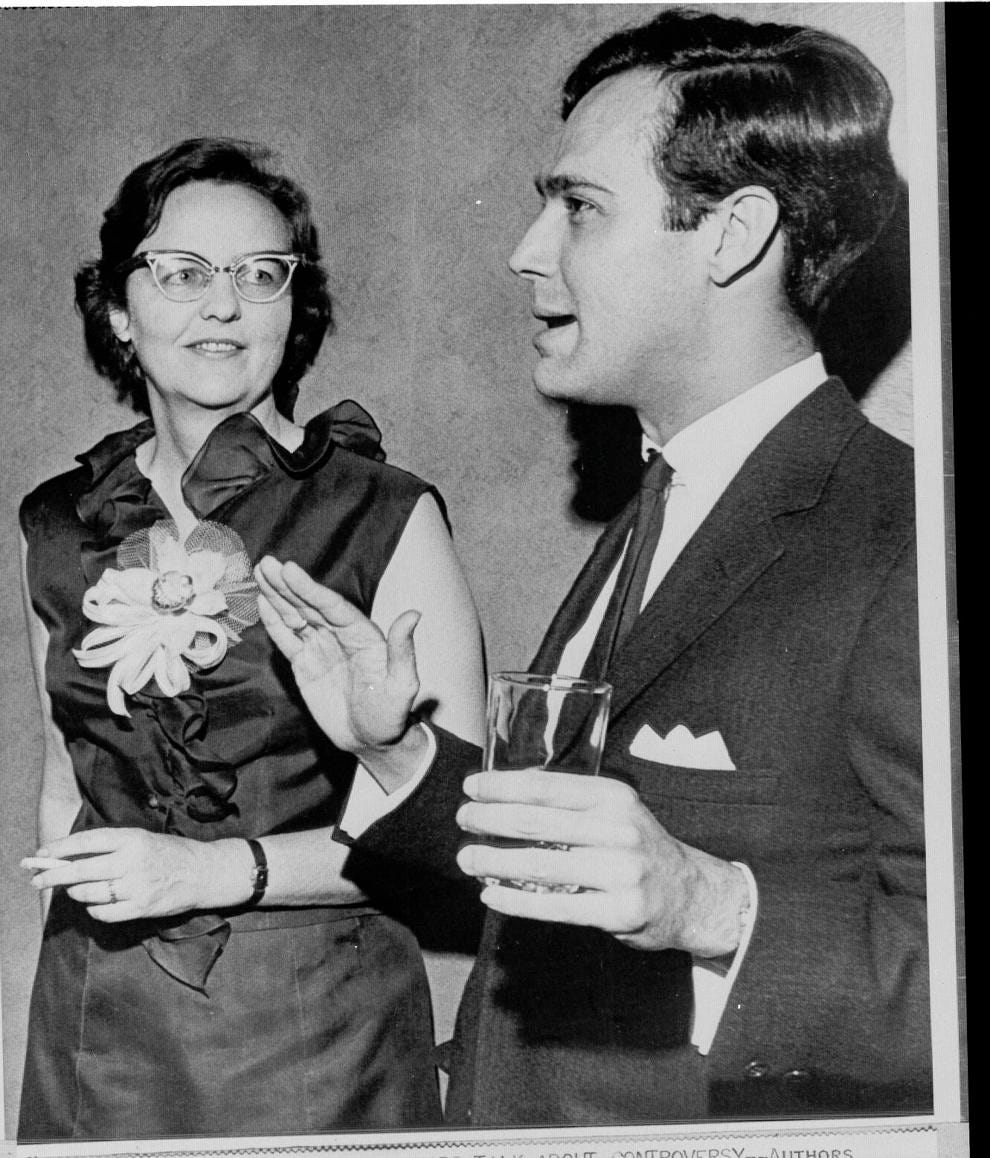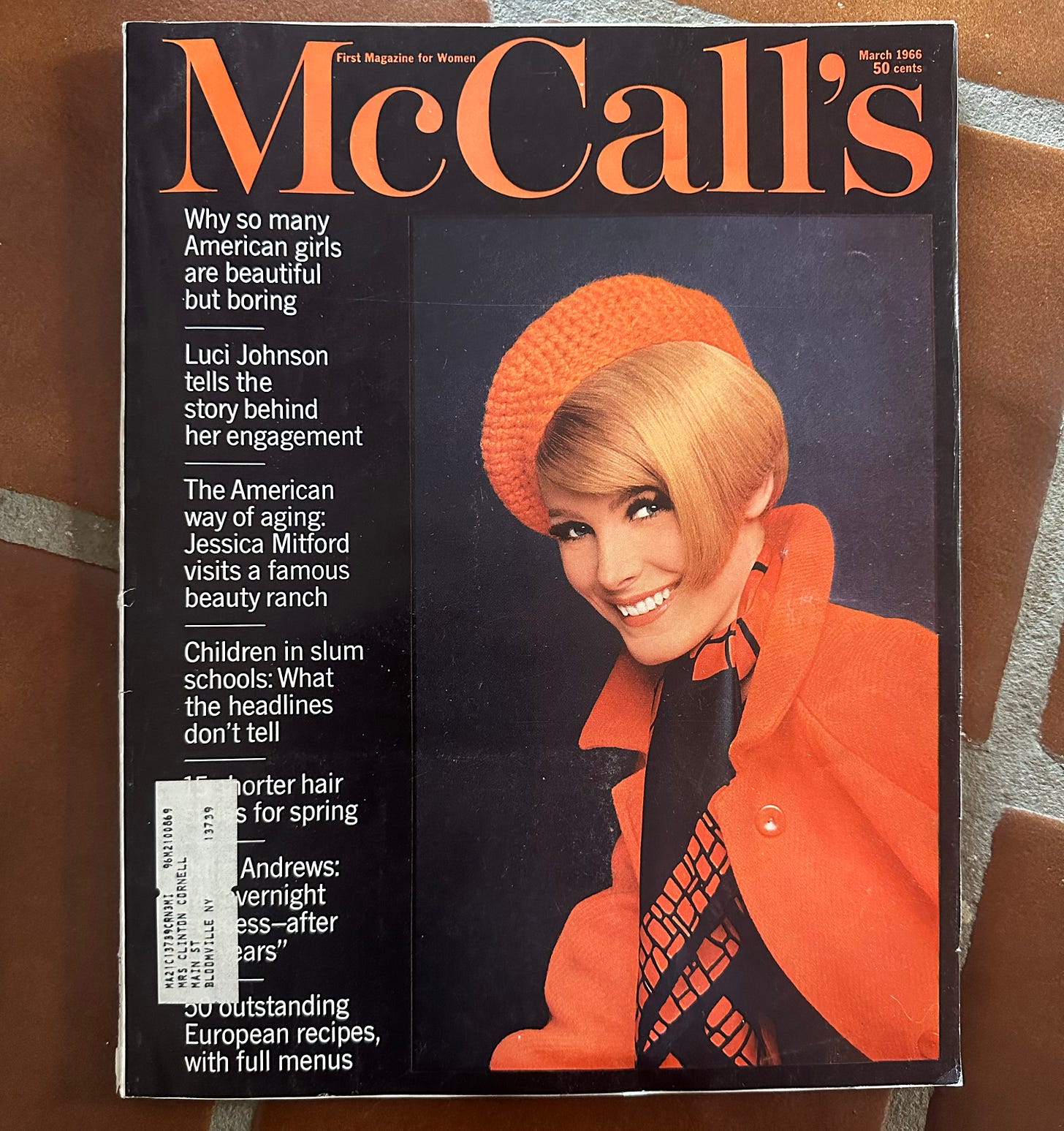The American Way of Aging
Jessica Mitford visits Elizabeth Arden's Arizona Maine Chance Spa, 1966
Three years after the publication of her most famous book, The American Way of Death—a success so great that it caused a “revolution in burial customs” and took down the funerary industry—Jessica Mitford turned to look at how Americans approach aging, by visiting Elizabeth Arden’s renowned Arizona Maine Chance spa resort.

As the fifth of six daughters born to Lord Redesdale and a magazine publishing heiress, Jessica grew up surrounded by sisters of such different temperaments and beliefs that, as the “Mitford sisters,” they would become headline news for decades: “Nancy, the eldest, was a well-known novelist; Diana, an icy beauty, married the leader of the British fascists, Sir Oswald Mosley; Unity, fond of poetry and spectacle, made friends with Adolf Hitler and shot herself when Britain and Germany went to war; Deborah became the duchess of Devonshire.”1 Jessica, unlike her sisters, turned to the left, fighting in the Spanish Civil War at 19, becoming an avowed Communist, and working throughout the 1950s with the Civil Rights Congress. In the early 1960s, she began to focus on investigative journalism and tackled the funeral, prison, and birth industries in long-form investigative books.
With the same “crisp prose, biting satire, and a fearless approach to a difficult subject” that defined her writing on death, Mitford attacked the anti-aging rituals of the rich and middle-aged in “The American Way of Aging,” an article published in the March 1966 issue of McCall’s. I’ve written extensively on Arden’s Arizona Maine Chance and its predecessor, Maine Chance Spa, before—a new form of beautifying resort where “Elizabeth Arden truly established the code for the modern spa: the bucolic setting, the spare meals elegantly presented, an intensely structured schedule, a democratizing uniform, privacy, and a high price tag.” Sending a Leftist journalist (she left the Communist party in 1958) into this world of expensive pampering beloved by a president’s wife (Mamie Eisenhower) was always likely to highlight the absurdity of the place rather than rejoice in the glamour, as was common for most other period articles on Arden’s spas. Her politics are clear—though of an aristocratic background, she feels apart from the wealthy Republican wives that frequent Maine Chance, who have nothing to discuss beyond diets and shopping.
Nothing escapes her sharp eye. What Robert Gottlieb, the legendary editor who worked with her on The American Way of Death, wrote in his memoir on her applies as much to this article as it does to that book: “Yes, she had been a fierce Commie; yes, she was a savage fighter for equal rights—for everyone’s rights; yes, she loved to expose chicanery; but I think what she loved most of all was revealing the idiocies of the foolish, the greedy, and the pompous. Certainly she went to town on them in AWOD, as we referred to her book. It wasn’t just the machinations of the funeral people that called to her, it was their language, their posturing. The more she tormented them, the dopier they became—it wasn’t a fair fight because she was so much smarter than they were, and so much more ruthless.” Mitford takes in her fellow “flowers”—their bodies, insecurities, politics—along with the managers, location, and treatments with unflinching clarity.
Keep reading with a 7-day free trial
Subscribe to Sighs & Whispers to keep reading this post and get 7 days of free access to the full post archives.




